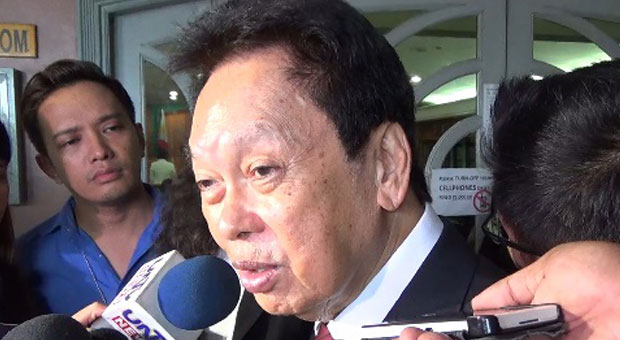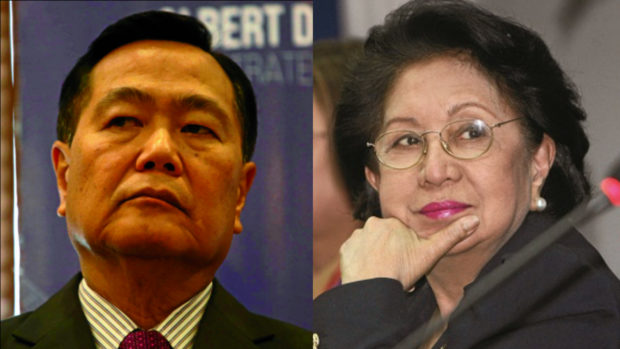Ex-Marcos SolGen wants petitions vs anti-terrorism law dismissed
MANILA, Philippines – Veteran lawyer Estelito Mendoza, a former solicitor-general during the time of Ferdinand Marcos, has asked the Supreme Court to dismiss the petitions questioning the legality of the Anti-Terrorism Act of 2020 for lack of jurisdiction.
Mendoza also asked the Supreme Court to allow him to participate as amicus curiae (friend of the court) and admit his comment on the petitions filed against the law.
The anti-terrorism law is currently the most contentious law with more than 20 petitions already filed in court.
Mendoza said the petitions should be dismissed for lack of “actual controversy involving a legally demandable and enforceable right.”
He said a penal law, like the ATA “may not exist without the commission of any act, and no act is alleged to have been committed, there can be no ‘actual controversy’ involving rights which are legally demandable and enforceable.”
The petitions, he said “do not sufficiently allege, much less show, that the petitioners have committed any act in violation of the anti-terrorism act thereby creating an ‘actual controversy’ involving a legally demandable and enforceable right for the exercise of judicial power under Section 1, second paragraph, of Article 8 of the Constitution.”
Article continues after this advertisementMendoza specifically rebutted the arguments raised in the petition filed by lawyer Howard Calleja and that of retired Supreme Court Justices Antonio Carpio and Conchita Carpio-Morales. He said those were the only copies he managed to acquire.
Article continues after this advertisementThe veteran lawyer wanted to appear as a friend of the court “believing that his experience on issues relevant to the instant cases” could help the high court in resolving the petitions.
Aside from service as solicitor-general during the Martial Law era, Mendoza was also the justice minister and governor of Pampanga.
As of last Wednesday, there have been 29 petitions filed with the SC against ATA which became law last July 3 and implemented by the government starting July 18. An oral argument is scheduled for the third week of September. [ac]

